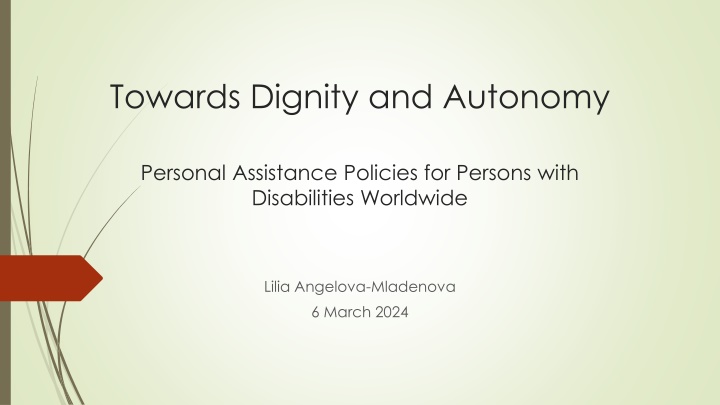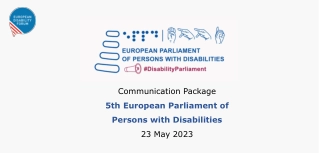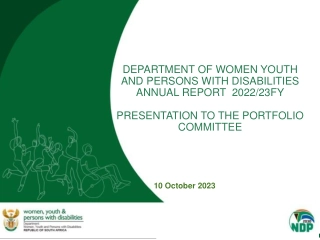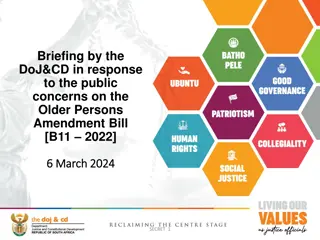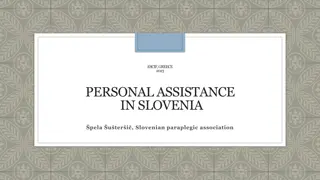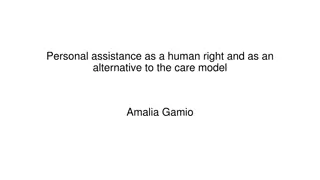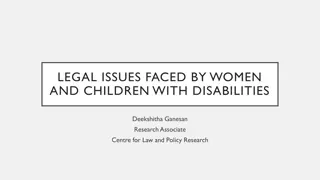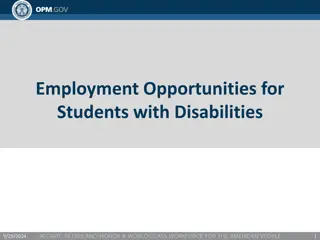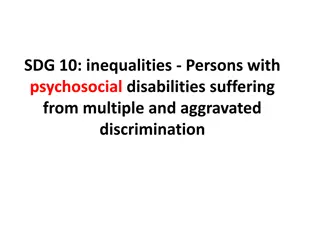Enhancing Personal Assistance Policies for Persons with Disabilities Worldwide
This study delves into the importance of personal assistance in promoting the dignity and autonomy of individuals with disabilities. It discusses the challenges, methodology, main findings, and recommendations for ensuring decent working conditions for personal assistants, thus facilitating independence and inclusion for persons with disabilities.
Download Presentation

Please find below an Image/Link to download the presentation.
The content on the website is provided AS IS for your information and personal use only. It may not be sold, licensed, or shared on other websites without obtaining consent from the author.If you encounter any issues during the download, it is possible that the publisher has removed the file from their server.
You are allowed to download the files provided on this website for personal or commercial use, subject to the condition that they are used lawfully. All files are the property of their respective owners.
The content on the website is provided AS IS for your information and personal use only. It may not be sold, licensed, or shared on other websites without obtaining consent from the author.
E N D
Presentation Transcript
Towards Dignity and Autonomy Personal Assistance Policies for Persons with Disabilities Worldwide Lilia Angelova-Mladenova 6 March 2024
Background and objectives Care and support discussions working conditions gender equality Brings the perspective of persons with disabilities Personal assistance: key for independent living and inclusion (Art. 19, CRPD)
Methodology Upper-middle income Costa Rica High income Inclusion criteria Mapping Country selection Desk research and consultations Americas Asia and the Pacific Thailand Japan, Republic of Korea, Taiwan England, Slovenia, Sweden Europe and Central Asia Serbia, Bulgaria
Challenges and limitations Variability in the quality and quantity of information Language Public access Timeframe Does not capture diversity within countries
Main findings and recommendations Promoting independence and inclusion of persons with disabilities Ensuring decent working conditions for PAs
Promoting independence and inclusion of persons with disabilities Self-directed funding (direct payments) Equal access across the country Coverage of all costs Funding based on individual needs 24/7 availability Training and support Assess quality through impact on users
Personal assistants PA services create jobs; mainly women Significant workforce shortages: low wages, poor recognition High job satisfaction: lower turnover
Ensuring decent working conditions of PAs Adequate pay rates Access to support Improved job stability and security Improved visibility and image of PA profession Training and development opportunities
